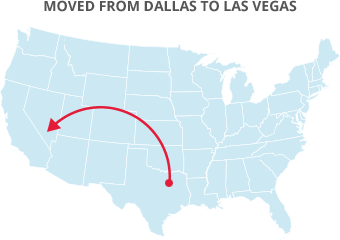
You’ve got a business to maintain. And now you have to maintain it while you’re moving it from one location to another! How do you keep your Oklahoma City business growing and the profits flowing while your furniture’s going out the door? That’s the “million dollar” question of office relocation! Give it a wrong answer, and your productivity and profits will go out the door with the furniture.
At A-1 Freeman Moving Group, we’ve got a correct answer for you – one that’s predicated on helping keep you from making 8 blunders that we, as
office relocation specialists, find all too often made:
- Not Planning Ahead. As soon as you get word that you’ve got to move, that’s when you ought to start planning for it. Alas, too many companies launch into their office relocation planning a little too late. Too late for what, you ask? Well, too late for moving companies and other suppliers to put together a reasonable proposal for you, let alone properly deliver the goods and services you purchase from them. Remember: too little time usually translates into too many errors. Let the size of your company and the complexity of your move – i.e., the number of steps that must be completed before other steps can be started – guide you in determining how soon is soon enough.
- Not Checking Out Your Mover Thoroughly. Office relocations are tricky. You need a moving company that’s smart enough to handle office furniture and modular systems, computer systems and networking, office equipment, machinery, and hardware, cabling, phone systems, security systems, building permits, and ... that’s just for openers, make sure they’re legitimate. Visit https://ai.fmcsa.dot.gove/hhg/search.asp to see, first of all, that they’re U.S. Department of Transportation (DOT) licensed and insured, particularly for interstate commerce. Read the reviews at bbb.org. to discover if any criticisms of them are on file with the Better Business Bureau. And, if you can, talk with other companies who’ve used them to see how well they fulfilled their contractual responsibilities. It’s also worth your while to ask about their moving crews – whether they’re full-time employees or temps, whether they’ve been background checked and drug tested, and whether they observe standard chain-of-custody procedures.
- Not Coordinating and Communicating Properly with Your Mover. Your office relocation manager has to work with the project manager your moving company has alloted to see that your internal team and the moving company’s team are in perfect sync. Any amendments to the schedule have to be properly conveyed to all those involved, lest one upset create others and cause all sorts of gaffes and cost overruns.
 Not Assigning Enough Internal Staff to Your Move. The difficulty of any office relocation practically stipulates that you enlist the help of people from within your organization. Look for people in each department who comprehend their department’s needs well and have access to relevant company records. That might not necessarily be the department head! To be blunt, you’re often better off asking for the help of experienced but non-managerial staffers, as they’ll be more inclined to take your relocation manager’s direction without argument.
Not Assigning Enough Internal Staff to Your Move. The difficulty of any office relocation practically stipulates that you enlist the help of people from within your organization. Look for people in each department who comprehend their department’s needs well and have access to relevant company records. That might not necessarily be the department head! To be blunt, you’re often better off asking for the help of experienced but non-managerial staffers, as they’ll be more inclined to take your relocation manager’s direction without argument.- Not Keeping to Schedule. It’s seldom the case that an office relocation schedule decelerates. Certainly, various stages can be held up for this or that reason. But what usually happens then is that the schedule is squeezed. And that usually happens because the planning got started too late. And what happens when you attempt to compensate for lost time? More people from your side and the mover’s side are assigned more overtime hours. Everybody starts annoying everybody else. Things get confusing. Mistakes are made. And who pays for all this? Yep. Better to devise a rational schedule up front and follow it.
- Not Budgeting Sufficiently for Your Move. Frankly, it’s difficult for any company that hasn’t undergone a relocation before to know just what its move will cost when all is said and done. To leave that cost to happenstance, though, or to budget for it insufficiently is a big mistake! Typically, you must figure in recurring real-estate costs, soft-dollar expenses for, say, employee relocation and training, capital expenses including new furniture and office equipment purchases, moving expenses, and consulting expenses for such things perhaps as interior design and engineering. The more of your needs you reckon with in the beginning, the more manageable the expense of your office relocation will be.
- Not Having Enough Coverage. If you’ve decided to go with a professional relocation company of any reputation, the risk of property damage is small. Still, you ought to be prepared. Consult your mover about the coverage options they have and select the one that best serves your firm.
- Not Taking Care to Back Up Your Data. There’s no point in recounting horror stories here. Suffice it to say that when your office relocation is in progress, your firm’s material records ought to be backed up digitally, wherever practicable. Those that can’t be digitized should be deposited safely in a warehouse. And your digital data ought to be backed up in the cloud. As a matter of record, losing such data or suffering its destruction isn’t a frequent phenomenon. But do you really want to risk it? Then, however you can, back it up!
A great way to circumvent these sorts of errors – or to compensate for them effectively – is to employ a moving company that has a proven track record of successful office relocations. May we propose A-1 Freeman Moving Group right here in Oklahoma City? Research our credentials as we suggest above. Then review our
office relocation services and ...
Request a free quote



 You’ve got a business to maintain. And now you have to maintain it while you’re moving it from one location to another! How do you keep your Oklahoma City business growing and the profits flowing while your furniture’s going out the door? That’s the “million dollar” question of office relocation! Give it a wrong answer, and your productivity and profits will go out the door with the furniture.
You’ve got a business to maintain. And now you have to maintain it while you’re moving it from one location to another! How do you keep your Oklahoma City business growing and the profits flowing while your furniture’s going out the door? That’s the “million dollar” question of office relocation! Give it a wrong answer, and your productivity and profits will go out the door with the furniture. Not Assigning Enough Internal Staff to Your Move. The difficulty of any office relocation practically stipulates that you enlist the help of people from within your organization. Look for people in each department who comprehend their department’s needs well and have access to relevant company records. That might not necessarily be the department head! To be blunt, you’re often better off asking for the help of experienced but non-managerial staffers, as they’ll be more inclined to take your relocation manager’s direction without argument.
Not Assigning Enough Internal Staff to Your Move. The difficulty of any office relocation practically stipulates that you enlist the help of people from within your organization. Look for people in each department who comprehend their department’s needs well and have access to relevant company records. That might not necessarily be the department head! To be blunt, you’re often better off asking for the help of experienced but non-managerial staffers, as they’ll be more inclined to take your relocation manager’s direction without argument.